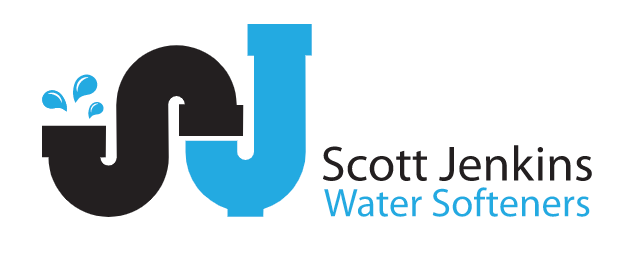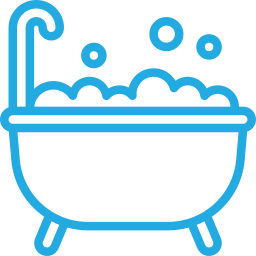Can Hard Water really get under My Skin?
Scott Jenkins’ personal story
Short story | Full story | Conclusion
-
Eczema in children is a common complaint
-
Steroid creams might only provide a temporary solution
-
Continuous use of hard water may be the reason eczema is hard to shift
-
From personal experience, softened way can cure eczema within days
-
Research shows that hard water damages the skin’s protective barrier
-
Hard water’s alkalinity counters the skin’s natural acidic pH
-
Constant exposure to alkaline increases risk of skin infection
-
Water softeners reduce risk of developing eczema, research show
This article is Scott Jenkins’ personal experience of how he managed to find an almost immediate cure for his young daughter Maisie’s eczema condition through softened water. Prior to installing a water softener at home – which meant being exposed to very hard West Sussex mains water – the condition persisted despite regular steroid cream treatment. Softened water cured the condition and, years later, Maisie remains free of eczema and dry skin.
Research has shown that the alkalinity pH of hard water is the direct opposite of our skin’s naturally acidic pH. This disturbs the skin’s natural function to act as a physical barrier or protector to bacteria that can lead to dry skin condition, like eczema. To keep the skin naturally soft, it therefore makes sense to wash in softened water.

The full story
One of the things which convinced me that a water softener is a must-have product in the home was when I realised how much it helped my daughter, Maisie.
She was born in 2012 with eczema and she did suffer with it quite badly. Initially, when it was diagnosed, it was treated with steroid cream. Although this did improve the condition to a degree, it certainly didn’t cure it. The eczema was still visible, the rashes never completely went away and poor Maisie still found it infuriatingly itchy at times.
It wasn’t ideal, either, to keep applying strong steroid cream for any length of time, but what was the alternative? Happily, there was one.
You could call it a lightbulb moment – it was actually more a case of desperately searching for an answer to the problem – but I had wondered whether the hard water in the area we lived in was making matters worse. So, I installed a water softener in our house, to see if this would help Maisie’s condition.
Within just a day or two, I was struck by the dramatic effect that the soft water was having. Maisie’s eczema disappeared virtually straight away – and it has never come back. For me, it felt like a miracle and, ever since, I’ve been passionate about spreading the word of how beneficial soft water can be for the skin.
Looking back, it seems funny that after all those years of worry, of taking Maisie to the doctors, of applying creams and not really getting very far with stopping her eczema, the solution was there all the time – softened water.
It’s not just me saying this. My own personal experiences are also backed up by science.
Researchers from the University of Sheffield and King’s College London have discovered that hard water actually damages the protective skin barrier which may contribute to the development of eczema.
How does hard water cause dryness of the skin?
The reason water is hard is because of the prevalence of magnesium and calcium ions. This may get a bit technical, but here’s what happens. These ions bind to surface active agents, such as sodium lauryl sulphates, which act as detergents or wetting agents. This makes them insoluble, so they collect on the skin. At the same time, our skin pH is naturally acidic (pH is the figure used to express the acidity or alkalinity). But hard water has high alkalinity and when it comes into contact with the skin it increases the skin’s optimal surface pH.
This disturbs the skin’s natural function to act as a physical barrier or protector against nasty bacteria. With the skin’s protection levels lowered, the body is left more vulnerable to infections, such as eczema and other dry skin complaints.
The team of researchers examined whether removing the calcium and magnesium ions, through the use of an ion-exchange water softener, could mitigate the negative effects of hard water on the skin. They found that using a water softener reduces the harmful effects of surfactants, potentially decreasing the risk of developing eczema.
How to keep skin feeling soft and smooth
As explained above, the skin doesn’t take very well to hard water. And even if you aren’t someone who suffers particularly with skin conditions, your skin will still be constantly battling to stay soft and fresh looking if it is being regularly saturated in hard water.
Washing is one of our basic necessities – and avoiding contact with water is not desirable and virtually impossible! So, the sensible option is to ensure that, where washing (and lots of things) is concerned, you are exposed to soft water, rather than hard water on a daily basis. If not at work, then certainly when at home.
Installing a soft water system in the home is the most effective way of ensuring that your skin stays healthy and young looking. A dry, craggy and wrinkled appearance is not something to which any of us aspire. It doesn’t matter how young or old you are – from a babe in the cot to a venerable old pensioner – soft water will remain a lifelong friend to your skin and complexion.
If you have family members who are susceptible to dry skin or who suffer from skin conditions, like eczema, my first-hand knowledge on the subject may be of help to you.
As an aside, as much as we love soft water, turmeric and cabbage leaf bandages are also known to be helpful for eczema sufferers.
Conclusion
Eczema is an all-too common complaint, especially in children, which I’ve found can be easily treated with exposure to soft water. In my experience, soft water has been able to successfully get rid of eczema altogether – when steroid creams couldn’t. In fact, I’d go so far as to say that by introducing a water softener into our home, my daughter Maisie’s life has been transformed. And freed me from a lot of worry and stress.
I’m Scott Jenkins and the company I founded, SJ Water Softeners, is now the No. 1 local supplier of water softeners for West and East Sussex (and parts of Hampshire and Surrey). For further information about our great range of soft water system products, call 01243 607494 or contact us via email: scott@sjbs.info










